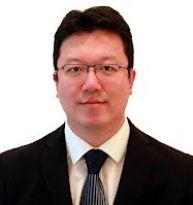event
Nano@Tech: Mar. 11, 2014; Engineering Biomimetic Microsystems for Nanomedicine with YongTae “Tony” Kim
Primary tabs
Abstract: Nanomedicine – the application of nanotechnology to healthcare – encompasses the rapidly expanding field of drug delivery using nanomaterials. The advanced treatment of diseases, such as cancer and atherosclerosis, need controlled targeted delivery of therapeutic and diagnostic (theranostic) nanomaterials containing multiple drugs and imaging agents for treating diseases and monitoring their transport in the human body. Conventional approaches to the syntheses have faced challenges including batch-to-batch variations in the physicochemical properties and difficulties in scaling up the production. Moreover, poor in vitro models in drug development process lead to nearly a third of experimental drugs failing only once they are tested in patients. This talk will present two approaches to overcome the challenges, which include (1) the controlled microfluidic formulation of theranostic nanomaterials with high productivity and reproducibility and (2) the development of a simple microchip model for probing nanoparticle translocation over the permeable endothelium in experimental atherosclerosis. These approaches will facilitate the development and optimization of multicomponent theranostic nanomaterials, contributing to a novel therapeutic and diagnostic paradigm for treating atherosclerosis as well as cancer.
Biography: Dr. Kim is an Assistant Professor at the George W. Woodruff School of Mechanical Engineering. Dr. Kim’s research focuses on developing biomimetic microsystems that reconstitute organ-level functions on chip and on integrating microfluidic modules with control systems that allow large-scale production of therapeutic and diagnostic bio/nanomaterials. His lab develops experimental control systems and microfluidic platforms, and employs computer-aided engineering to understand: (1) how cells coordinate responses to signaling cues in multicellular environments; (2) how bio/nanomaterials assemble and break in dynamically controlled fluid flows; and (3) how biological systems interact with nanomaterials with varied physicochemical properties. Prior to his current appointment, he was a Postdoctoral Associate in the David H. Koch Institute for Integrative Cancer Research at Massachusetts Institute of Technology, in 2011; he received a Ph.D. in Mechanical Engineering from Carnegie Mellon University. Before joining Carnegie Mellon, he was a researcher in areas of dynamics, controls, and robotics at R&D Divisions of Hyundai-Kia Motors and Samsung Electronics for 6 years. He received Bachelor’s and Master’s degrees in Mechanical Engineering from Seoul National University. He has authored multidisciplinary research articles in major journals including PNAS, Nano Letters, ACS Nano, JACS, PLoS ONE, Lab on a Chip, Microfluidics and Nanofluidics, IEEE Transactions on Control Systems Technology, etc. He has filed over 20 patent applications worldwide (including 9 US patents), won Dowd-ICES Predoctoral Fellowship and Dean’s Fellowship from Carnegie Mellon, and consulted for biomedical companies.
Status
- Workflow Status:Published
- Created By:Christa Ernst
- Created:12/11/2013
- Modified By:Fletcher Moore
- Modified:04/13/2017
Categories
Keywords
Target Audience

